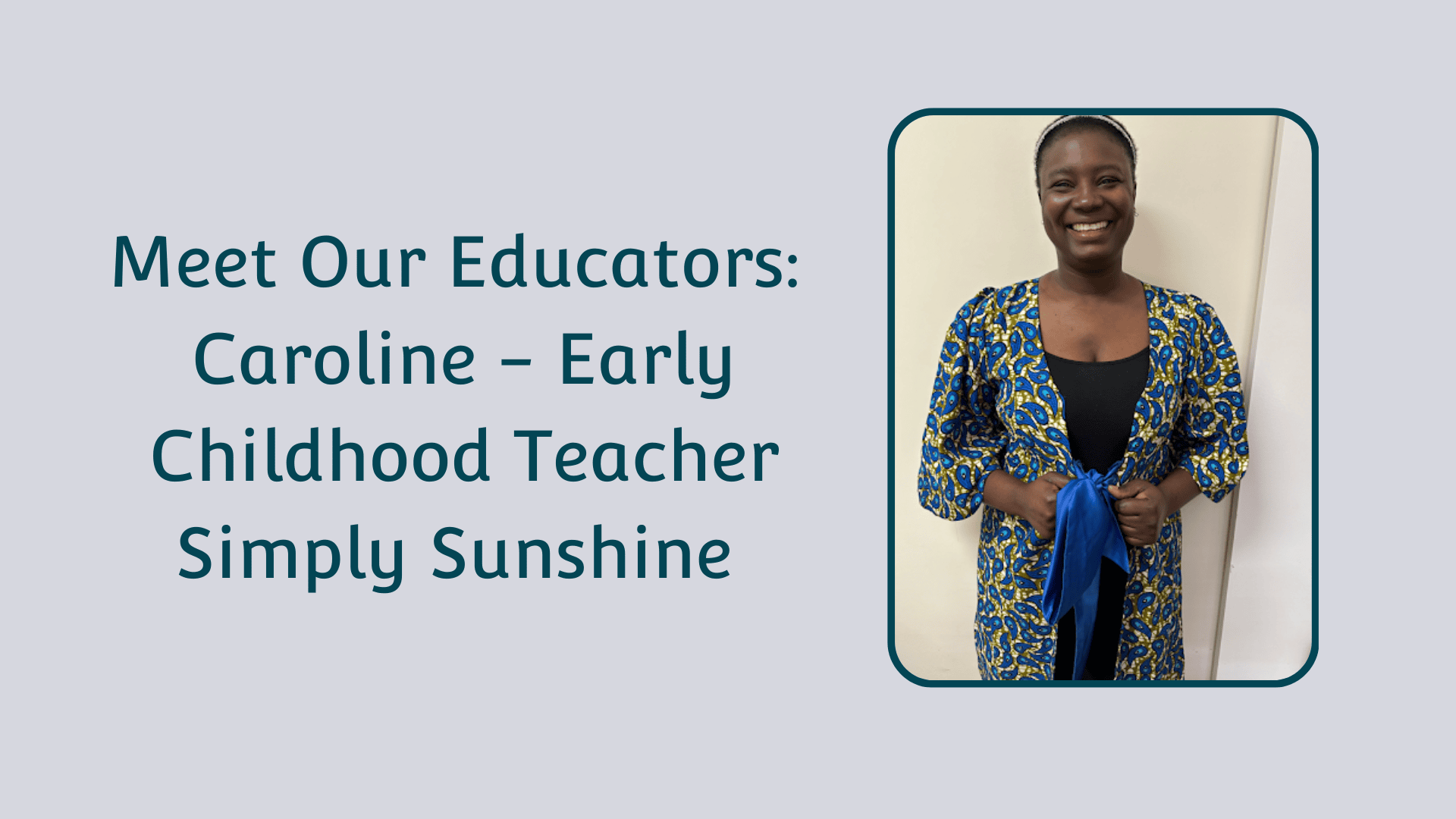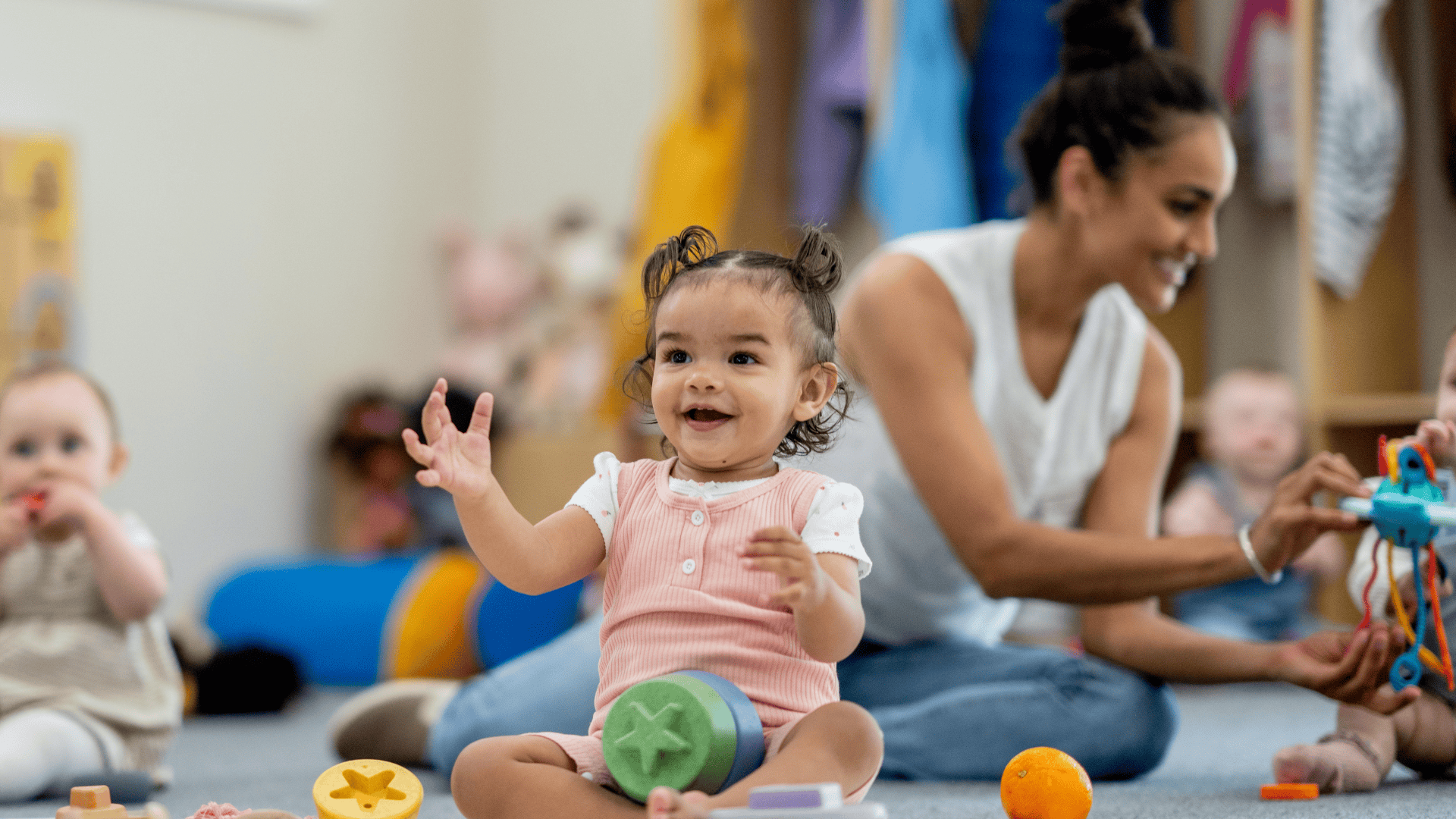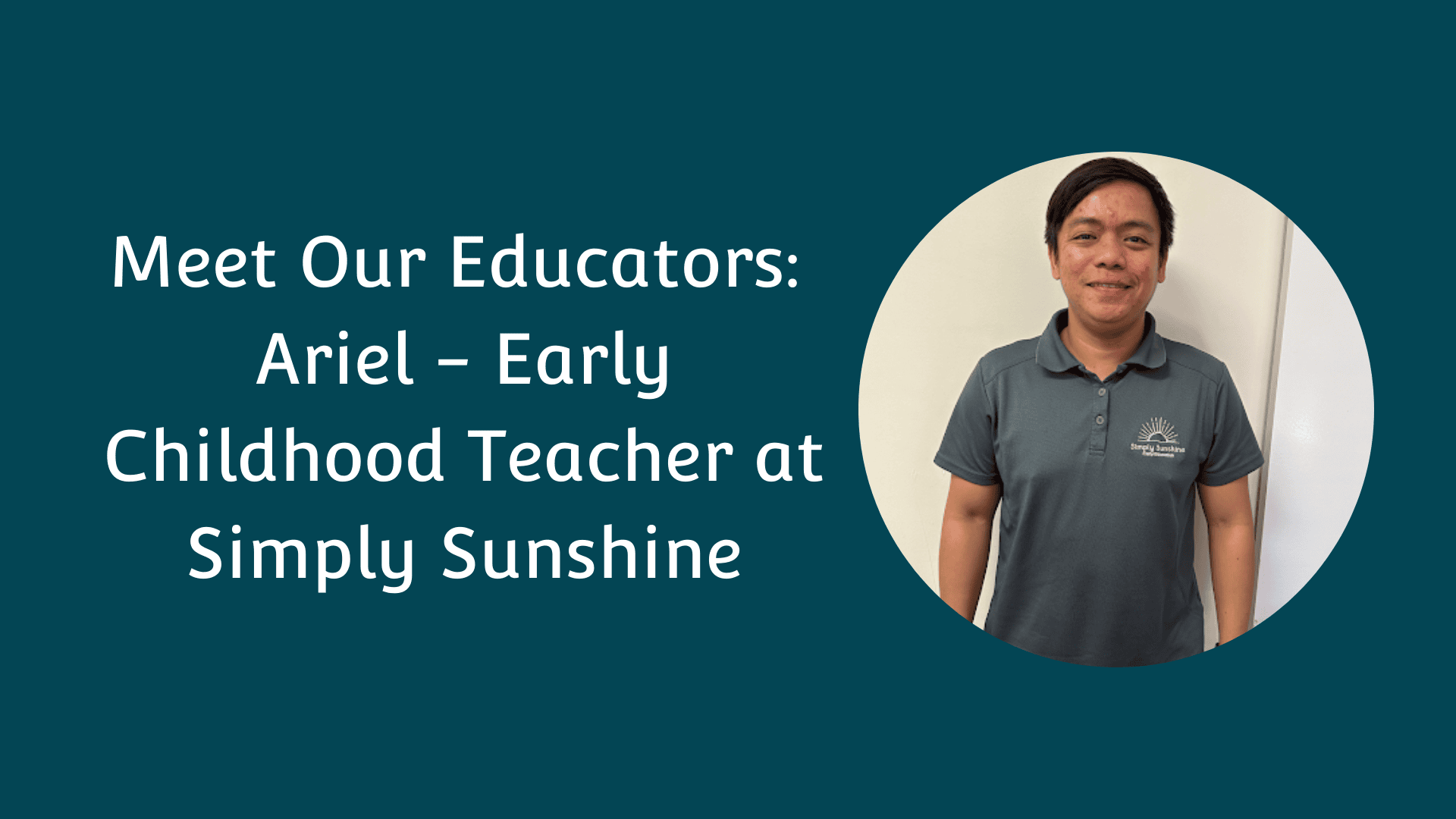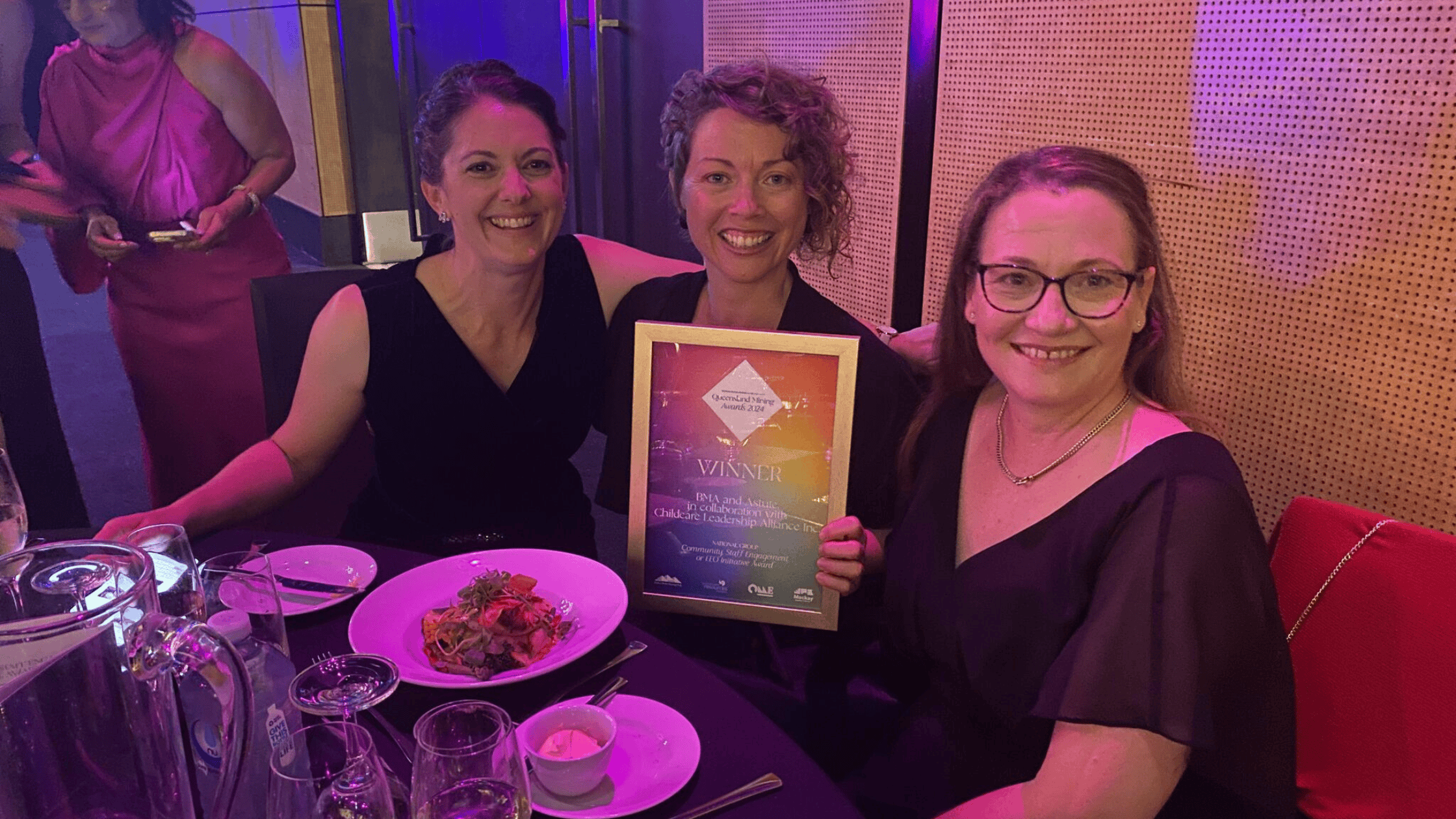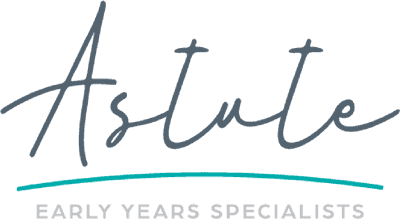As early childhood educators, we focus every day on developing strong relationships, being able to negotiate with peers, sharing (and understanding what that means!), having a strong sense of identity, and caring for others – as these are some of the most important skills that we need in life.
Children (and adults) need well-developed social and emotional skills to thrive in all areas of their lives. Early learning centres, schools, swimming lessons, and sports classes are busy environments with different people, unique challenges, and varied expectations. In the early years, we are aiming to build children’s social and emotional skills to be able to handle all situations, starting with familiar spaces with safe adults and working up to new environments.
In the early years, these are some of the practical skills we work on:
Separation
Children need to be able to separate peacefully from their families to start their day. This can be a skill that takes time to develop, as children build deep relationships with educators and understand the separation process. Every child responds differently to separation – some are happy to run off and play while others need more support and a regular routine. Separation is something that happens throughout our lives so while it may be hard for children and families, it is so important! Early childhood educators play a key role here in helping families feel comfortable and secure, which in turn helps children to settle.
Social Skills
Social skills are critical, both in the early years and beyond! Social skills encompass many things, including being able to play, cooperate, share, take turns, and enjoy time with others. These are the skills needed to form relationships and make (and keep!) friends. Early childhood educators explicitly teach social skills, model them in their daily practice and explore them through ‘teachable moments’. We use books, role play, and conversations to underpin the teaching which happens in the moment throughout our days.
Conflict Resolution
If you’ve spent any time with children you will know there is conflict! Conflict is actually an important and healthy part of development. It’s a tricky skill to learn and children need plenty of practice. Early childhood educators walk a fine line here, we need to keep everyone safe, but we also need to let children try out their developing skills! As educators, we observe first and step in when needed. Even young babies and toddlers who are often perceived as ‘snatching’ can be passing toys back and forth and interacting, we just need to take the time to observe. However, it is still our job to keep children safe and model the skills which are required. We can use language like ‘I can see you’re upset, it’s ok to be upset. I’m not going to let you hit your friends’. Then we can offer alternatives and model negotiation.
Problem-solving and perseverance
When confronted with a problem we want children to persevere and keep trying! They need to understand what the obstacle is and then come up with ways to overcome it. Some children are naturally good problem solvers (often the ones who get into everything!) but others need more coaching and support in their areas. As educators, we need to be aware of our different children’s needs and provide individual support to them. We also need to model our own frustration and problem-solving.
Following rules
Being able to understand that there are different rules in different situations, and then being able to follow these, is a key part of development! There will always be different rules for different areas of our lives and that’s ok. As early childhood educators, we are able to demonstrate and model this to children, even simple things like being allowed to kick a soccer ball outside but not inside, help to build up this understanding. As children mature it is important that they begin to understand the WHY behind the rules that are in place and have opportunities to contribute to making the rules.
Independence
There are many things that our children can’t do – but what can they do? What areas of their lives can they take ownership of and build their independence? Early childhood educators see children as capable and advocate for their autonomy and ability to make choices. Children are given many opportunities each day (even as an infant) to participate in decision making.
There is plenty of time for children to develop these skills and it is a journey that will continue throughout their lives, and early childhood educators play a critical role in this development!
To learn more about the long-term benefits of quality childcare check out this blog.


